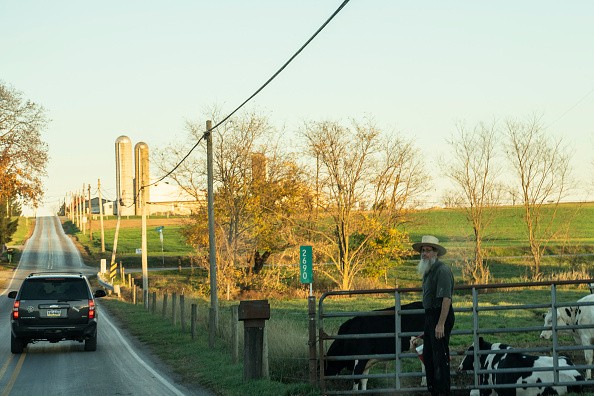Air pollution has been a major concern for communities and the environment.
In a recent study, researchers found that air pollution could threaten natural pest control in farms. The impact of air pollution could also affect the health of animals and humans.

Reports said air pollution had been attributed to many factors, including man-made activities.
According to the UN Environment Programme's report, air pollution is considered a major environmental problem to health.
The UN Environment Programme shared that air pollution could impact biodiversity and ecosystems.
Meanwhile, the World Health Organization (WHO) noted that sources of worsening pollution are motor and car vehicles. Others are from factories, aerosol cans, or cigarette smoking.
The effect of air pollution on health could result in diseases.
While there is man-made pollution, there are also natural sources of air pollution, including forest wildfires or volcanic ashes.
Meanwhile, the National Geographic explained that air pollution chemicals could impact the health of plants and animals. In addition, the report said that air pollution could affect the soil and water, harming crops, trees, and plants.
With the impact of air pollution, the report emphasized the importance of cooperation and commitment among countries to mitigate the worsening effect of air pollution.
Effect on natural pest control
Farming has natural methods for pest control. It is considered sustainable as it avoids using harmful pesticides.
However, the report found that air pollution could affect natural pest control.
Natural pest control is cheaper and environment-friendly. It is also sustainable and not harmful to the environment, unlike using pesticides and other chemicals to control pests in farmlands.
The researchers found out that exposure to diesel from the burning of vehicles could result in a sudden drop in insects.
Furthermore, the researchers noted that the number of insects for pest control methods significantly dropped, noting that the study was conducted based on safe environmental regulations.
According to the report published on the Phys.org website, Dr. James Ryalls pointed out that the findings were worrying and could impact sustainable farming to natural pest control methods.
The impact of air pollution, particularly diesel and ozone, showed that the wasps had difficulty looking for prey and aphids. The researchers noted that it could result in the said pest control drop in population.
Meanwhile, the researchers discovered one parasitic wasp species that could thrive in polluted or when diesel and ozone are present.
Diaretiella rapae was found to have a greater chance of surviving and repopulating even if the environment is polluted with diesel or ozone.
The researchers explained that the Diaretiella rapae would be a better option for natural pest control methods in areas contaminated with diesel and ozone.
Meanwhile, the researchers noted the importance of studying the whole system.
The researchers also added that the emergence of electric vehicles would mitigate air pollution. Worsening air pollution could have harmful effects on sustainable and natural pest control.
For more similar, don't forget to follow Nature World News.
© 2026 NatureWorldNews.com All rights reserved. Do not reproduce without permission.





